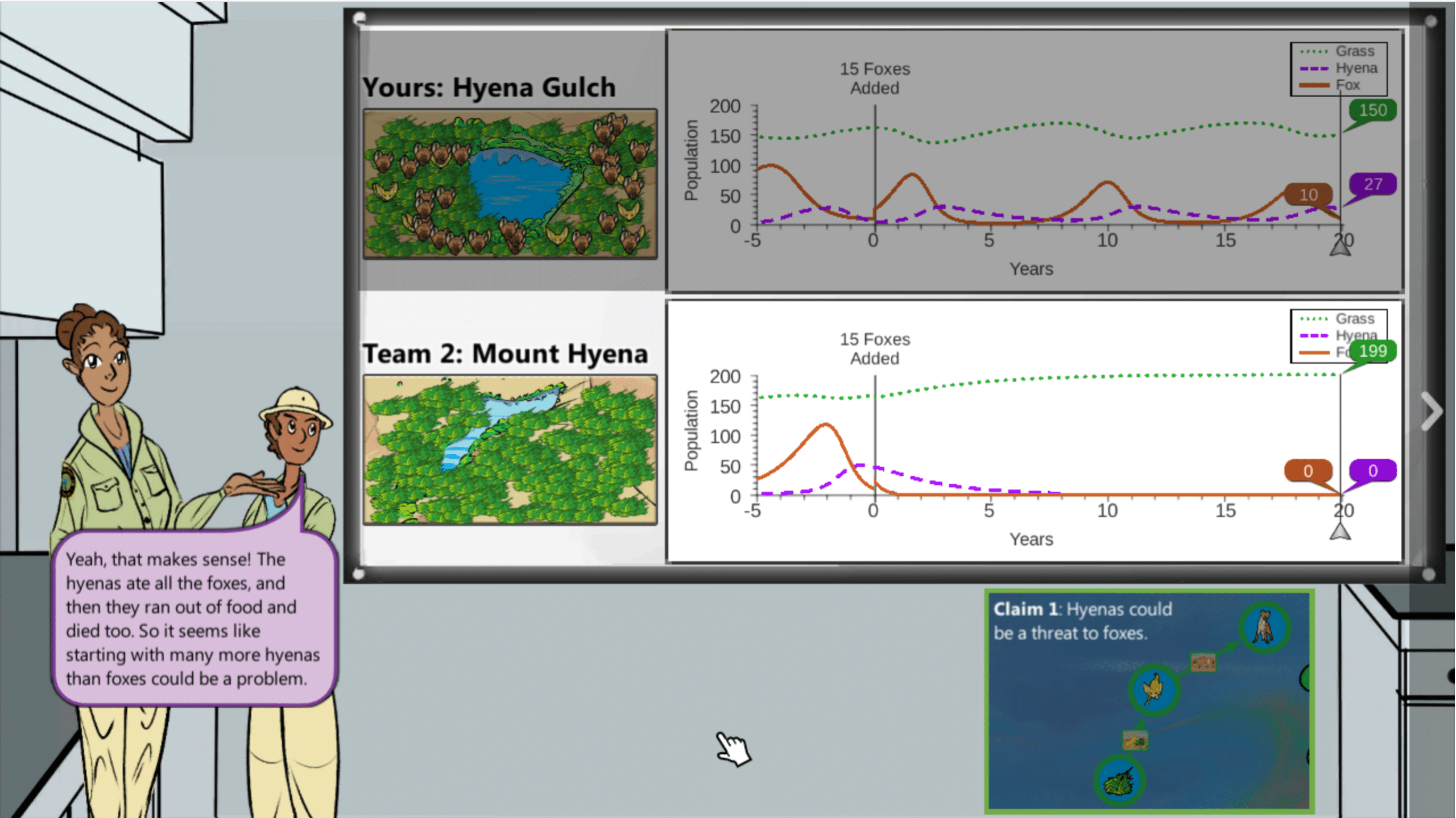Award Won!
Best Social Media Crowdsourcing Game

SimScientists Ecosystems Games
WestEd and Intelligent Automation, Inc.
As part of an NSF-funded project, WestEd and IAI are developing two games to serve as formative assessments for an existing SimScientists middle-school curriculum that includes simulation-based embedded assessment activities. The SimScientists Food Web Game focuses on construction of a food web from evidence collected about interactions between organisms. The SimScientists Population Game builds on the Food Web Game, focusing on population dynamics and evidence collected to support explanations of predation and competition.
In each game, the player alternates between collecting evidence in a virtual world (an African desert oasis) and developing models of the ecosystem. The player works collaboratively with virtual peers, a scientist, and a wildlife manager. In the Food Web Game, the player and virtual peer travel through the oasis in a jeep gathering clues (by taking pictures) about the interactions between organisms in the ecosystem. Then they use these clues to construct a food web as a model of the flow of matter and energy in the ecosystem (with help from the virtual scientist if needed). Upon completing the food web, the virtual scientist and peer engage the player in explaining the interactions and flow of energy and matter through the ecosystem, making predictions about potential threats to the survival of the fennec fox, and supporting their predictions with evidence and reasoning. In the Population Game, the player and virtual peer work together to restore the fox population in an oasis, fly drones to collect evidence on the population changes (by gathering data from “tags” on the organisms), and reason from the evidence to explain predation and competition between organisms.
